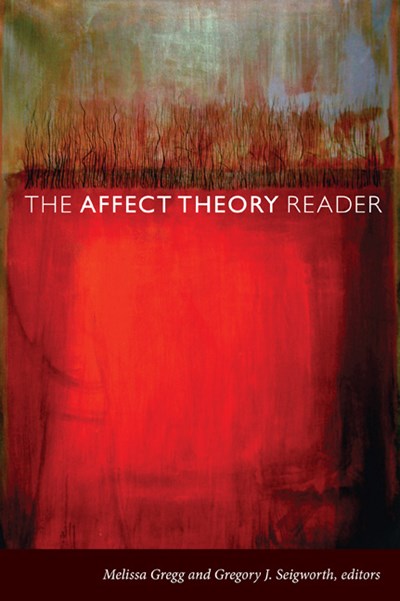A field-defining collection that consolidates thinking and builds momentum in the burgeoning area of affect studies.
This field-defining collection consolidates and builds momentum in the burgeoning area of affect studies. The contributors include many of the central theorists of affect—those visceral forces beneath, alongside, or generally
other than conscious knowing that can serve to drive us toward movement, thought, and ever-changing forms of relation. As Lauren Berlant explores “cruel optimism,” Brian Massumi theorizes the affective logic of public threat, and Elspeth Probyn examines shame, they, along with the other contributors, show how an awareness of affect is opening up exciting new insights in disciplines from anthropology, cultural studies, geography, and psychology to philosophy, queer studies, and sociology. In essays diverse in subject matter, style, and perspective, the contributors demonstrate how affect theory illuminates the intertwined realms of the aesthetic, the ethical, and the political as they play out across bodies (human and non-human) in both mundane and extraordinary ways. They reveal the broad theoretical possibilities opened by an awareness of affect as they reflect on topics including ethics, food, public morale, glamor, snark in the workplace, and mental health regimes.
The Affect Theory Reader includes an interview with the cultural theorist Lawrence Grossberg and an afterword by the anthropologist Kathleen Stewart. In the introduction, the editors suggest ways of defining affect, trace the concept’s history, and highlight the role of affect theory in various areas of study.
Contributors. Sara Ahmed, Ben Anderson, Lauren Berlant, Lone Bertelsen, Steven D. Brown, Patricia Ticineto Clough, Anna Gibbs,Melissa Gregg, Lawrence Grossberg, Ben Highmore, Brian Massumi, Andrew Murphie, Elspeth Probyn, Gregory J. Seigworth, Kathleen Stewart, Nigel Thrift, Ian Tucker, Megan Watkins

